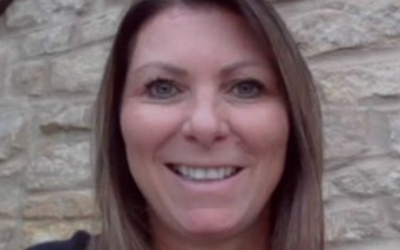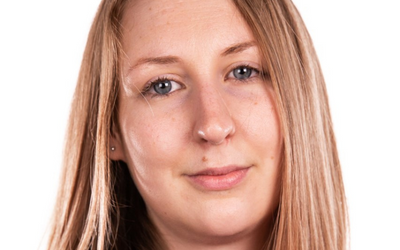You are here
- Home
- External Events and Publications
- Biennial APS Conference
- APS Conference 2023
- Conference programme
- IDEAS for developing an inclusive curriculum
IDEAS for developing an inclusive curriculum
Dr Wendy Fowle and Nicola Beer, Oxford Brookes University
Email: wfowle@brookes.ac.uk
Session recording
Presentation
Click to download the presentation IDEAS for developing an inclusive curriculum (.pptx)
Abstract
In January 2023 our University will be launching its IDEAS model. The model is one of the fundamental strategic initiatives being delivered under the umbrella of its Access and Participation Plan. It aligns with the University’s guiding principle of inclusivity within its Strategy (May and Bridger, 2010) and addresses the structural and pedagogical change needed across the teaching and learning landscape to create an environment where all students whatever their background:
- Enjoy a sense of belonging (Goodenow, 1993; Yorke, 2016)
- Have digital barriers removed from their learning experiences (Jisc, 2020)
- Develop skills to equip them to participate fully in the employment market, including resilience and confidence in their long-term career paths (Advance HE, 2019)
- Are enabled to take ownership of their own learning through meaningful and effective feedback (Sambell and Brown, 2021)
- Are supported to develop the knowledge, skills and competencies to enable successful contribution to a more sustainable future (Advance HE and QAA, 2021)
Inclusive learning design is pivotal to meeting our ambitions, ensuring that the needs of all students are being met and designed in from the very beginning of their study experience. It is informed by the breadth of literature regarding inclusive learning design and the experience of educational developers within the University. Our approach focuses on the following key elements:
- Inclusive learning
- Digital inclusivity
- Employability learning
- Assessment for learning
- Sustainability mindset
As part of the process, a set of questions in the student voice are presented to programme teams within each of these themes during the curriculum design process. This supports our human-centred, Design Thinking approach which places students and their experiences at the centre of the model.
Our workshop will provide an overview of the development of the model within the context of the relevant literature that has informed the design approach. Our new Student Curriculum Consultants will provide further insight into the role that they play in relation to embedding the student voice within the curriculum design process and the experiences they have had in this role to date.
Following the initial overview of the development and implementation of the model, delegates will be introduced to the specific tools associated with the themes and invited to engage more fully with them within breakout rooms. The breakout rooms will be facilitated by the presenters. Delegates will receive hands-on experience of using the tools and work with the facilitators within the interactive workshop.
With delegates back together in the final plenary session, we will present our approach to evaluating the impact of the IDEAS model, through a developed Theory of Change framework. The learning gained from this session will support colleagues in their approach to developing inclusive curriculum within their own institution in addition to developing a Theory of Change and associated Evaluation Plan.
References
AdvanceHE (2019) Embedding Employability in Higher Education Framework (online). Accessed 25 November 2022. Available at https://www.advance-he.ac.uk/teaching-and-learning/employability-enterpr...
AdvanceHE and QAA (2021) Education for sustainable development (online). Accessed 25 November 2022. Available at https://www.qaa.ac.uk/quality-code/education-for-sustainable-development.
Jisc (2020) Student digital experience insights survey: UK higher education findings (online). Accessed 25 November 2022. Available at https://www.jisc.ac.uk/reports/student-digital-experience-insights-survey-2020-uk-higher-education
May, H. and Bridger, K. (2010) Developing and embedding inclusive policy and practice in higher education (online). Accessed 25 November 2022. Available at https://s3.eu-west-2.amazonaws.com/assets.creode.advancehe-document-manager/documents/hea/private/developingembeddinginclusivepp_report_1568036692.pdf
Sambell, K. and Brown, S. (2021) Changing assessment for good: building on the emergency switch to promote future-oriented assessment and feedback designs. Assessment and Feedback in a Post-Pandemic Era: A Time for Learning and Inclusion, 11-21.
Dr Wendy Fowle
Associate Dean, Student Outcomes, Oxford Brookes University
Dr Wendy Fowle is currently Associate Dean, Student Outcomes at Oxford Brookes University. She is academic lead for the University’s Access and Participation Plan (APP), ensuring that the teaching and learning environment supports students from underrepresented and disadvantaged backgrounds. Previous to this Wendy was Assistant Director (Access, Participation and Success) at the Open University, undertaking a similar role but with a specific focus on adult learners. She was awarded her doctorate in February 2022 with her research exploring the transformative benefits of higher education to adult learners within the context of widening participation. She is a founding member of the sector APP Special Interest group which was established in September 2021. Affiliated to the Forum for Access and Continuation Education (FACE), the APPSIG provides a supportive forum for colleagues with strategic responsibility for developing and implementing APPs. As co-Vice-Chair to the FACE Executive Wendy also contributes to its aim of facilitating the exchange and dissemination of information and practices in lifelong learning and widening participation.
Nicola Beer
Principal Lecturer, Head of Digital Inclusive Curriculum Enhancement, Oxford Brookes University
Nik Beer joined Oxford Brookes in January 2022 as Principal Lecturer, Head of Digital Inclusive Curriculum Enhancement. Her background in Higher Education includes librarianship, learning design, intercultural engagement, and inclusive curriculum, with a focus on online and digital learning experiences. She is particularly interested in Sense of Belonging at university and how education shapes individuals’ perceptions of their own identity.
She is currently completing her PhD in Technology Enhanced Learning at Lancaster University and conducting research in the UK, Japan and Scandinavia on the impact of Virtual Exchange experiences outside formal education through a Churchill Fellowship. She is a Senior Fellow of the Higher Education Academy and Certified Member of the Association for Learning Technology.
Beyond Brookes, Nicola champions inclusion through volunteer roles as a school governor and as trustee of Warwickshire Pride.

